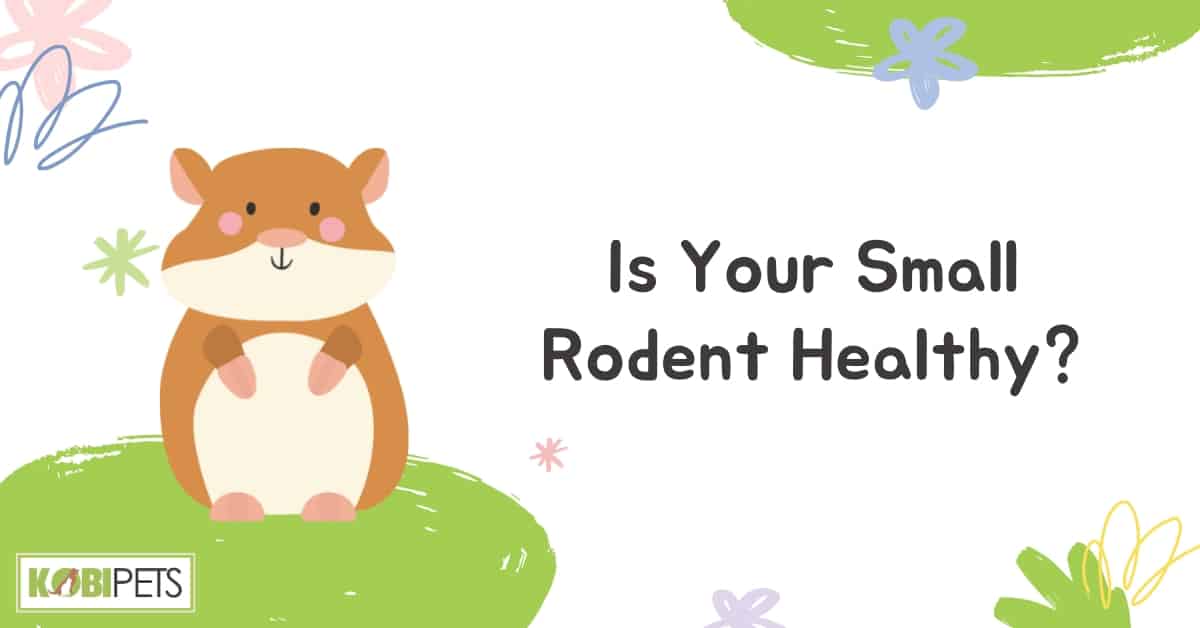
Are you a small pet owner who is concerned about the health of your furry friend? It’s important to keep an eye on any changes in behavior that could indicate a health issue.
To determine if your small rodent is healthy, look for signs of active behavior, clear and bright eyes, and a shiny coat. If you notice any changes in behavior, loss of appetite, or signs of injury, it may be best to consult with a veterinarian for a proper diagnosis and treatment.
In this blog, we will discuss some signs to look out for and steps you can take to ensure your small rodent remains healthy. Read on to learn more about how you can keep your small rodent in tip-top shape.
Signs to Look Out For
When evaluating the health of your small rodent, there are several signs to look out for. Firstly, the animal should display active behavior, such as running, playing, and foraging for food. Secondly, its eyes should be clear and bright, indicating good vision and the absence of infections or injuries. The coat should also be shiny and smooth, with no signs of patchiness, bald spots, or excessive scratching.
Additionally, the animal should have a good appetite and be eating regularly. Any changes in behavior, such as lethargy, hiding, or decreased activity, can indicate a health issue. If you notice any signs of injury, such as:
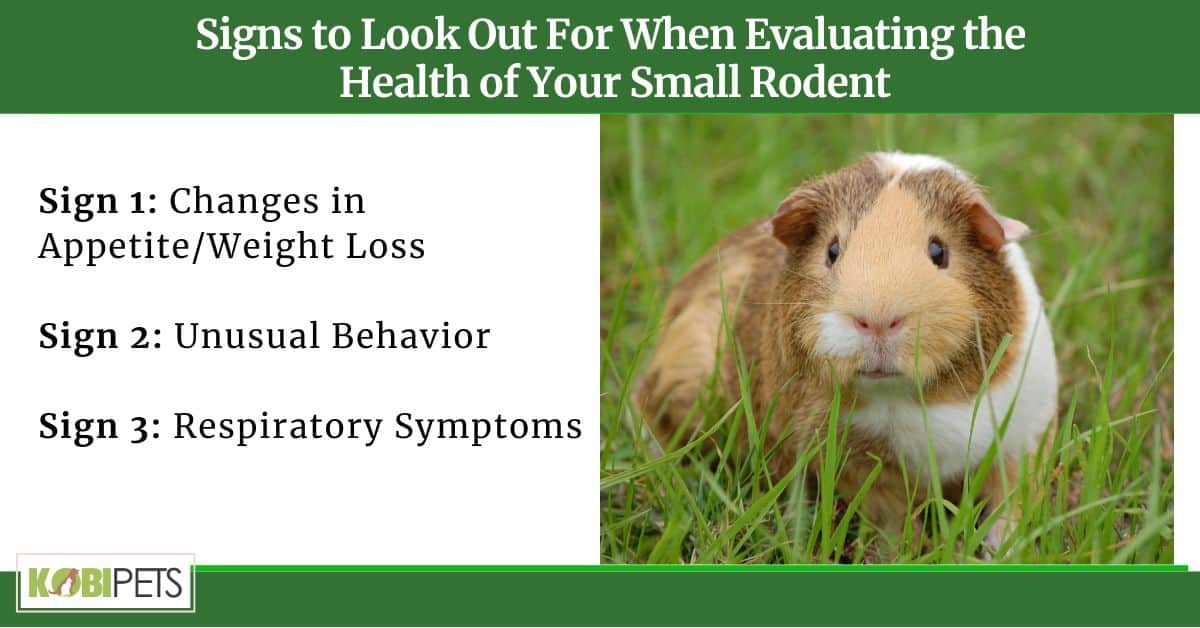
Signs to Look Out For When Evaluating the Health of Your Small Rodent
Sign 1: Changes in Appetite/Weight Loss
Are you worried that your small rodent might be experiencing changes in appetite or weight loss? These are important signs to look out for, as they can indicate that something is wrong.
Fortunately, with proper care and regular check-ups, you can easily monitor your pet’s well-being. Here are some of the changes in appetite/weight loss signs to watch out for in your small rodent:
- Sudden or dramatic weight loss – This can be caused by a variety of conditions such as poor nutrition, dehydration, or disease.
- Poor or decreased appetite – This could mean that your pet has dental issues, skin infections, or is suffering from stress due to a change in environment or lifestyle.
- Abnormal behavior – Look out for any sudden increase or decrease in activity levels or whether your pet is spending more time alone than usual.
- Unusual posture – Pay attention to whether your small rodent’s posture is slouching, hunched over, or upright which could indicate an underlying medical condition.
- Lack of grooming – Monitor if your pet’s coat looks more disheveled than usual and if it appears matted and rough.
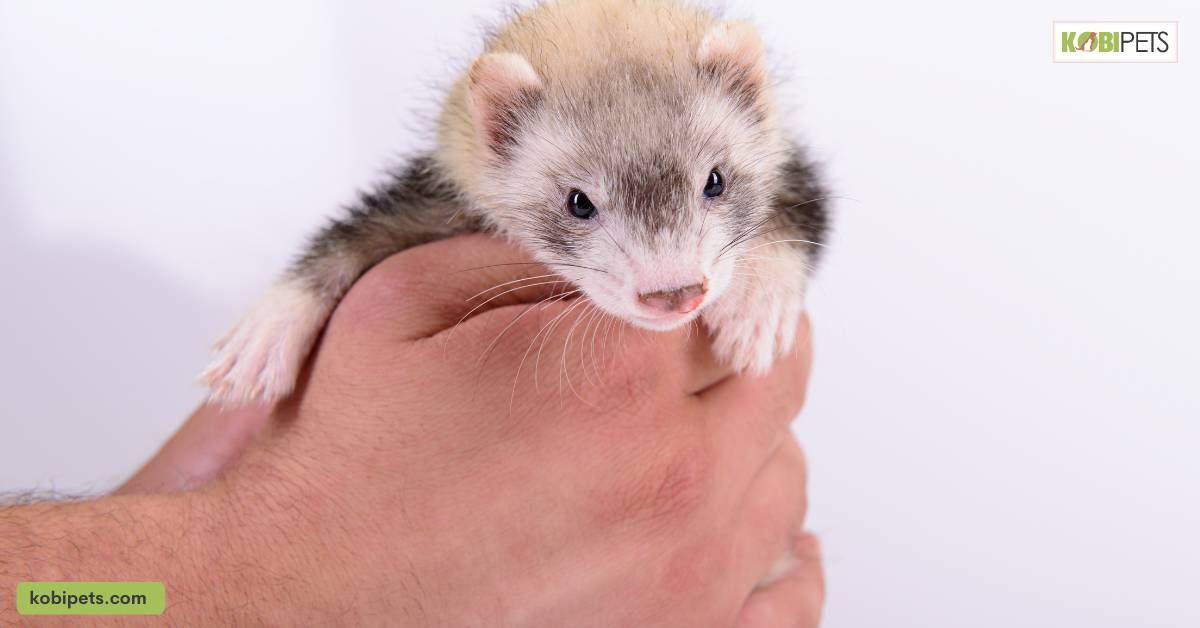
Sign 2: Unusual Behavior
It’s common for small rodents like hamsters, gerbils, and mice to exhibit unusual behavior at times. But how do you know when this behavior is a cause for concern?
Here are some signs to look out for that may indicate your small rodent is unwell.
A Sudden Change in Appetite
If your small rodent suddenly goes off its food, it could be a warning sign of an underlying health issue. Monitor their appetite closely and take them to the vet if you notice any substantial changes.
Increased Sleeping
If your small rodent is sleeping much more than usual, it could mean there’s something wrong with its health. It’s important to monitor how much sleep they are getting relative to their normal behavior and seek medical advice if necessary.
Excessive Grooming
Over-grooming can be a sign of stress or anxiety in small rodents, so pay attention if you notice excessive grooming behaviors like chewing fur from other body parts and bald patches appearing on the fur coat.
Lethargy or Lack of Activity
Active and energetic behavior is (usually) normal for small rodents but significant lethargy or lack of activity could suggest an illness or injury, so don’t hesitate to consult a specialist if necessary.
Unusual Noises
Small rodents tend to communicate through sounds like squeaking or chattering teeth, but listen out for any unusually loud noises which might indicate pain or distress within the animal itself.
It’s important to remain vigilant and keep an eye out for any unusual signs or behavior in your small rodent that could potentially signify poor health or discomfort; watching out for these signs will help ensure your furry friend stays as healthy as possible!
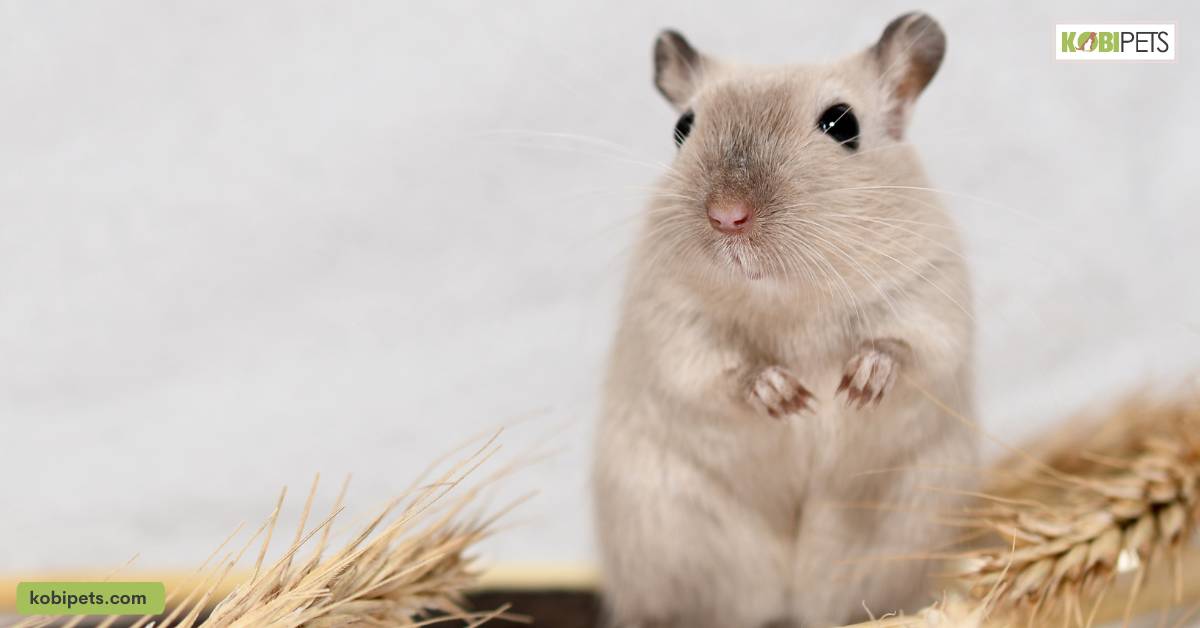
Sign 3: Respiratory Symptoms
Respiratory symptoms can be a sign of illness in small rodents and it’s important to be vigilant for these symptoms. Here are some common respiratory symptoms to look out for:
- Sneezing: frequent or excessive sneezing can indicate a respiratory infection.
- Wheezing or clicking sounds while breathing: these sounds can indicate a breathing difficulty or blockage in the airways.
- Open-mouth breathing: this can indicate a more severe respiratory issue, especially if accompanied by panting or gasping.
- Nasal discharge: clear, white, or colored discharge from the nose can indicate an infection.
- Decreased activity or lethargy: when an animal is not feeling well, it may become less active or lethargic.
If you notice any of these signs it’s best to contact a veterinarian immediately who will be able to diagnose and treat the cause accordingly. With the right kind of support and care your little friend should make a full recovery!
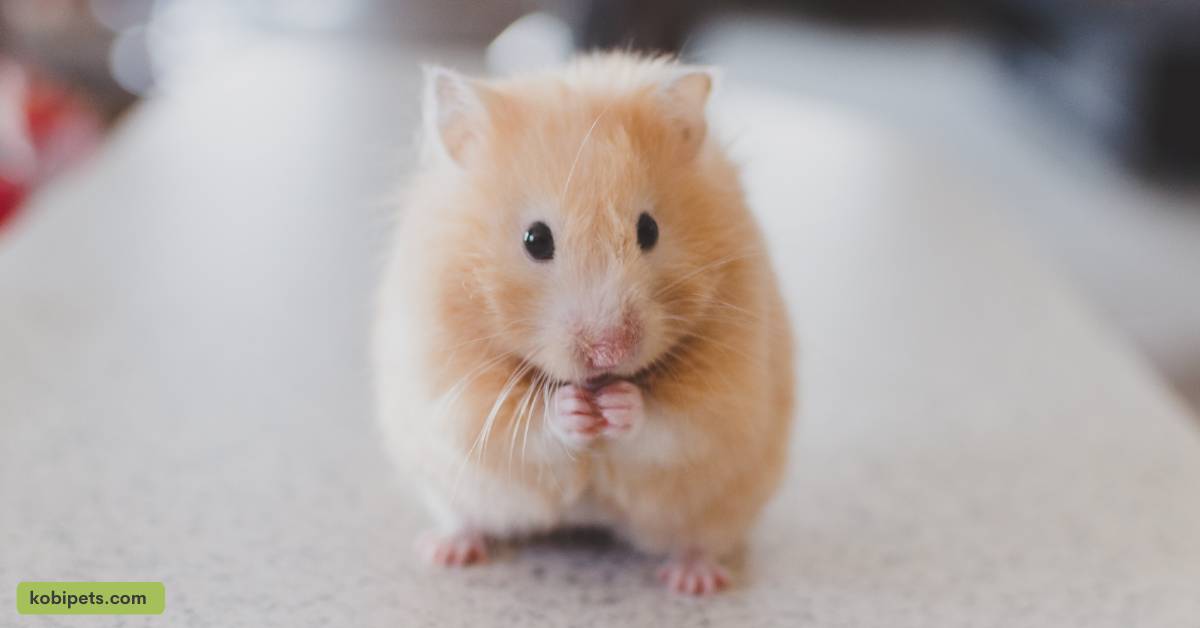
Providing Proper Care and Nutrition
Providing proper care and nutrition for your small rodent is crucial for their overall health and well-being. Here are some steps for proper care and a list of examples of nutrition:
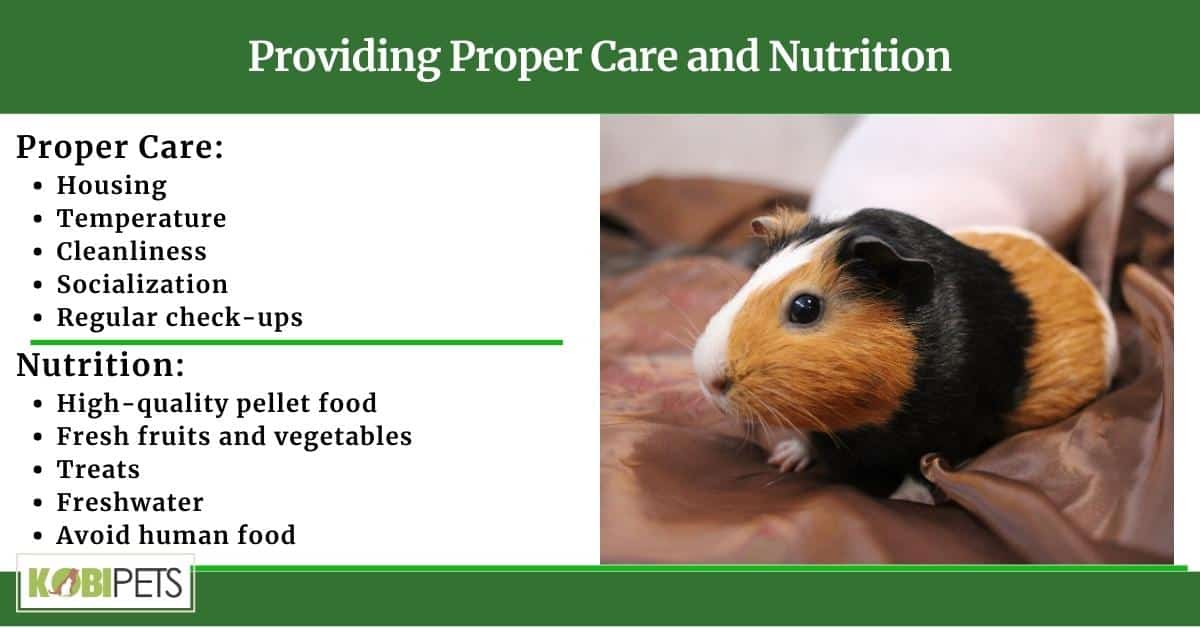
Providing Proper Care and Nutrition
Proper Care:
- Housing: Provide a cage that is large enough for your pet to move around freely, with plenty of hiding places, climbing structures, and comfortable bedding material.
- Temperature: Keep the cage in a room that is between 65°F and 75°F, away from direct sunlight or drafts.
- Cleanliness: Clean the cage regularly and spot clean daily, replace bedding, and wash food and water dishes as needed.
- Socialization: Spend time interacting with your pet to build a bond and provide stimulation.
- Regular check-ups: Schedule regular veterinary check-ups to ensure your pet is healthy and to address any issues early.
Nutrition:
- High-quality pellet food: Offer balanced and nutritious pellet food as the main source of nutrition, avoiding seed-based diets.
- Fresh fruits and vegetables: Offer fresh fruits and vegetables, such as carrots, apples, or lettuce, as a source of vitamins and minerals.
- Treats: Offer treats in moderation, such as nuts or dried fruit, to prevent overeating.
- Freshwater: Provide fresh water at all times, using a water bottle or a bowl.
- Avoid human food: Human food should be avoided, as it can be unhealthy and upset the delicate balance of your pet’s diet.
It’s important to remember that small rodents have unique nutritional requirements and to always consult with a veterinarian to determine the best diet for your pet. Feeding a balanced diet and providing proper care will help ensure a long and healthy life for your small rodent.
Exercise for Small Rodents
Exercise is important for small rodents to maintain their physical and mental health. Regular exercise helps to prevent obesity, promote cardiovascular health, and prevent boredom.
Some ways to provide exercise for your small rodent include:
- Providing a large cage or play area: this gives your pet plenty of room to move and explore.
- Providing toys and climbing structures: items like tunnels, hiding places, and ladders can provide physical and mental stimulation.
- Allowing supervised playtime outside of the cage: this can give your pet a change of scenery and allow for even more physical activity.
- Encouraging interactive play: playing with your pet using toys or treats can increase their physical activity and bond with you.
It’s important to keep your small rodent’s living area clean and free from any sharp objects or harmful substances that may cause injury. Regular exercise will help keep your pet happy, healthy, and active.
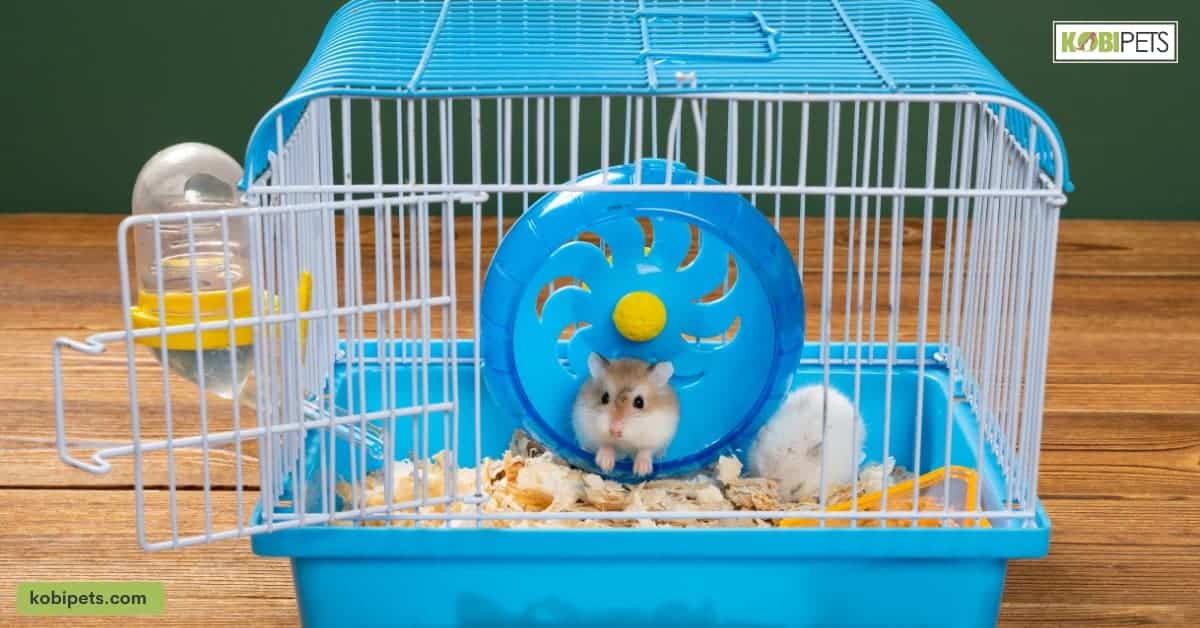
Regular Check-Ups with a Veterinarian
Veterinary check-ups are an important component of keeping your pet healthy. Regular visits to the vet’s office will help you spot any potential health issues before they become serious.
Also allow your veterinarian to update vaccine status, discuss nutrition and lifestyle choices, or answer any questions you may have about your pet’s health. To ensure that your pet receives the best possible care during vet visits, it is important to discuss any changes in behavior or diet with your vet.
Bring along a copy of their medical records, if available. Being proactive with regular check-ups can ensure that your pet stays happy and healthy!
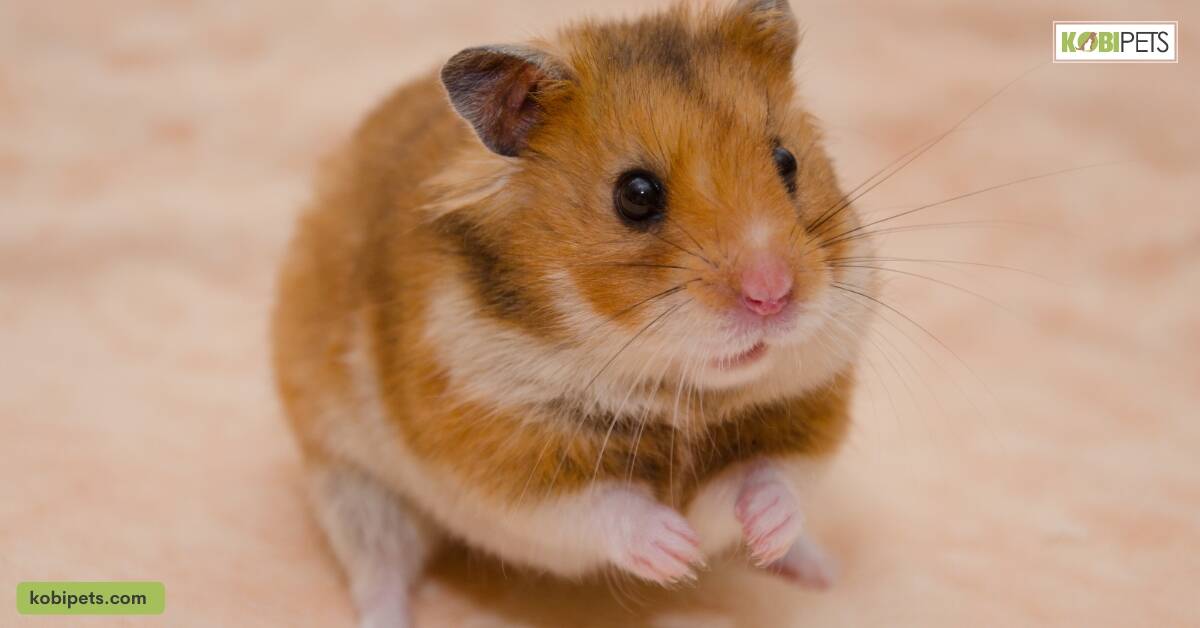
In Conclusion
Proper care and nutrition for small rodents are essential for their long-term health. To ensure your pet remains in top shape, be sure to keep an eye out for any changes in behavior or physical appearance that could indicate a health issue.
Additionally, providing regular exercise and check-ups with the vet are also important steps to take to ensure your small rodent remains healthy and happy. With a little bit of extra love and care, you can be confident that your pet will stay in good health for years to come!






